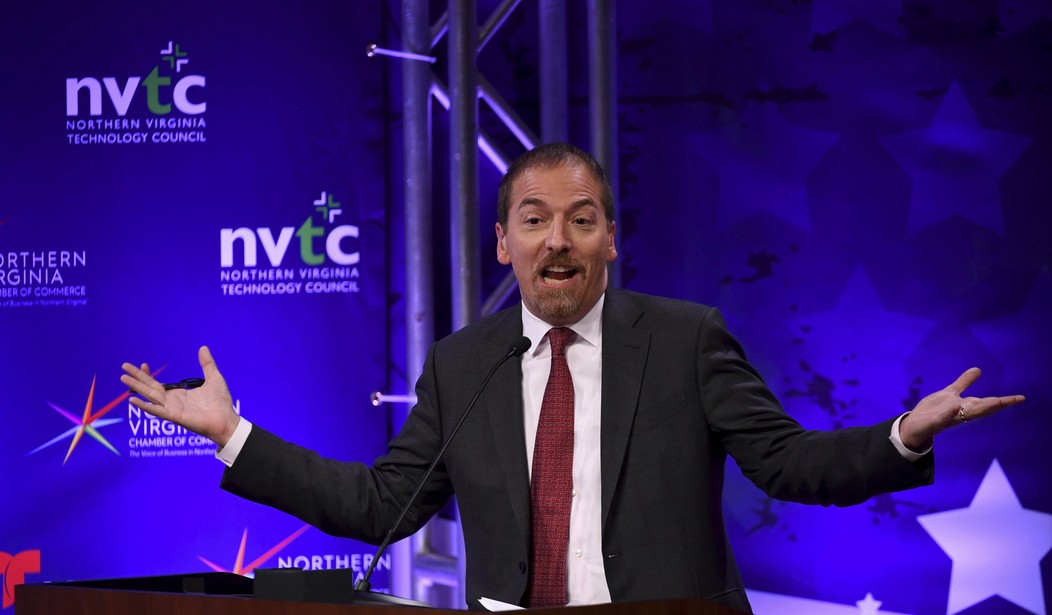In the closing days of the midterm election cycle, every Tom, Dick, and Harry in the media was busy posting their final polling tallies, particularly the state of the generic ballot. There were definite variations, but most of them showed the GOP with a slight advantage in the single digits. One outlier was NBC News, who called the generic ballot as being tied at 47% each for all voters and showing a one percent lead for Democrats among likely voters, raising the hopes of liberals around the country that the predicted bloodbath wouldn’t be quite as bloody as they’d feared. When you notice an outlier, however, it’s worth looking at their history. Are they being prescient or are they off the mark? And if the latter, is it just a statistical error, or are you seeing intentional bias in the wording of the questions or the sample size? As the Free Beacon noted yesterday, when it comes to NBC News in the modern era, they have almost always landed a bit away from the rest of the pack, and it’s been nearly uniformly to the benefit of the Democrats.
As Americans await tonight’s election results, political observers and the country’s top journalists have based their predictions, and their reporting, in large part on the final polls released last week. But many of these polls are likely to differ substantially from the final outcomes.
NBC News, for example, released its final national survey on Sunday. Chuck Todd trumpeted the results on Sunday’s Meet the Press: Democrats and Republicans are tied at 47 percent on the “generic” congressional ballot, and among likely voters in the same survey, Democrats now hold a 1-percentage-point lead.
While NBC’s survey likely buoyed Democrats, an analysis of the poll and the results of other recent surveys—as well as NBC’s polling history—suggests these generic ballot numbers may be inaccurate.
So how wrong has NBC News been in the past? They’ve never shown the GOP with a lead in the generic ballot going back to 2014. In both that year and 2016, they called the race a tie on the generic ballot, despite the fact that Republicans went on to win substantial majorities in the House each time.
The average NBC News error over the past six election cycles has worked out to 2.5 points in favor of the Democrats as compared to the final results. If that pattern continues today, it would change the one percent lead for Democrats to a 1.5 percent lead for Republicans, even among likely voters. So was this a sampling error or does the network intentionally build its sample in a fashion that leans a bit more to the left in an effort to bolster the confidence of the liberals? We have no way of knowing for sure, but I have my own suspicions.
The linked report also demonstrates why the generic ballot estimates rarely match up with congressional race results at the national level. Democrats tend to be concentrated in a limited number of districts comprising the larger urban areas, where their margin can often approach a two-to-one advantage over Republicans.
But the rest of the less densely populated districts across the nation tend to lean Republican, though often by smaller margins. That’s an important distinction because, in any given House race, it doesn’t matter if you win by 100 votes or by a landslide. The winner is the winner. So even if the total number of people across the country voting for Democrats matches or slightly exceeds the number voting for Republicans, the GOP will wind up winning more House seats in a theoretically even tally.
As the Free Beacon points out, if (and this is still a major “if”) a 2.5 generic edge for the GOP materializes today, it would likely result in a disproportionate victory in the lower chamber. That could translate to a margin of as many as forty seats for the Republicans. Will it happen? I’m too paranoid and superstitious to jinx us by making wild-eyed eyed predictions on the morning of the vote, but I’m definitely not feeling a dreaded wave of pessimism. And just for the record, yes. I was at our polling place before they even opened and I was the fourth person to cast a ballot on the machine I used. If you really want to see a red wave happen, I’m asking every one of you reading this to do the same. If you don’t show up, don’t come back b****ing to us tomorrow. Hang in there. It’s probably going to be a long night.








Join the conversation as a VIP Member